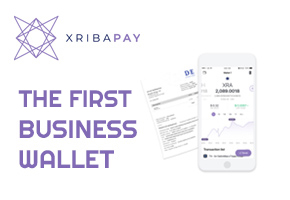I’ve made a number of investments throughout my career, some have been great, others less so. Along the way I’ve learnt some valuable lessons that I’d like to share with you so you can avoid making the same mistakes I did.
The path to startup success is full of obstacles. A lot of the time, those who start businesses often don’t see some of these obstacles, which is why so many businesses fail.
A brilliant business idea won’t help customers, effectively executing a well thought out plan will.
Startups tend to fail more so because of a lack of customers more so than the product or service. Dave McClure, founder of 500 Startup, one of the largest startup accelerators in the world, says: “Startups focus too much on the product, forgetting users and marketing. And this is a mistake “. Peter Thiel, the co- founder of PayPal agrees with this saying that the main cause of startup failure is poor distribution not product or service.
Idea + enthusiasm = loss of money is the equation that can be applied to so many failed startups.
1.Only focusing on the idea.
90% of the time a business idea in isolation is worthless. A business could be based on the world’s greatest idea, but if the team responsible for actually bringing it to life isn’t good enough, the business will fail.
When building a business, there are at least ten other companies around the world that are working on the same type of business.
What will separate you from them will be how well you’re able to execute your idea.
Is your distribution adequate? Are your team effective? What is your marketing plan?
Having the right answers to these questions, and other is crucial to the success of any business.
2.Being too early.
“It’s no fun being a century ahead of the times.”
– LYMAN FRANK BAUM
This quote from the creator of “The Wonderful Wizard of Oz” sums up how being too early is a bad thing. If your target market isn’t ready for your offering, it could end your business before it’s even started.
I’ll give you an example.
In 2012 we decided to invest in electric vehicle chargers.
At the time we also had a network of electricians with whom we decided to organise events on e-mobility to grow our network. Unfortunately. the market wasn’t ready and the project failed.
3.Not having an orphan.
Every entrepreneur needs an orphan. By that I mean someone whose one and only job is to focus on growing the business.
Starting and running a company means requires that person to wear a lot of hats managing different teams including:
- Marketing
- Finance
- Strategy
- Legal
In the beginning in particular it’s almost impossible for a founder or co founders to focus on solely on the the growth of the company.
Every business needs a business development specialist, someone who is 100% focused from the time they brush their teeth in the morning to when they lay their head on their pillow at night, on growing the business.
My outsourced web marketing company, Romi Ltd, began to grow in earnest after the three founding partners, all of them experienced entrepreneurs, sat around a table to decide to open the share capital to a contractor. He joined our team dedicating 100% of his time to the development of the business, becoming in fact “our” entrepreneur.
The first business wallet for fiat and cryptocurrency payments

4.Make useless stuff
In the early stages of a company, some founders focus on building products that they assume customers want. They don’t do any research to confirm their assumptions. They don’t build a MVP to test their hypothesis. This can be a grave mistake, because if you invest heavily in resources to build a product or service that nobody wants you’ve wasted a lot of time and money.
A MVP (Minimum Viable Product) can often be your MVP (Most Valuable Player) when starting out as it allows you test the market to see whether or not your current business idea is:
- Worth pursuing
- Needs to be scrapped
- Needs to be tweaked
Which will save you a lot of time and money in the long run, as well as keeping your investors happy if you have any.
In 2007, I started a property management company that managed second homes in Umbria and Tuscany, Italy which failed. Why? I didn’t build an MVP, I didn’t do the adequate research. If I had done I would have realised that the competitors were too strong, and the customer base was too narrow to keep the company afloat.
5.Forgetting that scaling up is hard.
Human intensive companies are often the hardest to scale up as recruiting well is one of the toughest challenges in business.
Simple repetitive procedures such as a company that automates admin tasks are easier to scale as they rely less on someone’s skill set. Human intensive businesses such as my company Smart Business Lab, which provides advice to entrepreneurs is doing well however, it’s proving difficult to scale as it’s heavily reliant on the skill set of the staff, who are amazing, hence why it’s doing so well.
A partner of mine often says “Every business must have an efficient and effective way of working” I strongly agree with him, having a clear working structure helps to increase and maintain a high level of employee productivity within a business.
You can’t rely solely on employee talent to run a business. This will make it impossible to develop it.
After seeing these errors and consequently highlighting some of the features that a startup must have to have a chance of success (notice I didn’t say “achieve success”, there are many other ingredients to consider)
Never rush into an important decision. Investing in a startup is an important decision.
Proceed with caution and logic.
Do not give into last minute pressure You know the phrase “There are other investors interested, be quick!”
Everyday a new so called unicorn appears, but not all unicorns remain unicorns.
Move fast, but never hurry.
Until next time,
Gianluca Massini Rosati
